Online Course
Build an online course that actually teaches. Use Pivot as your course creation app to structure modules, assign work with rubrics, monitor participation with analytics, run video sessions, and keep discussions flowing in topic-based rooms. This guide shows how a social learning platform can support online course creation inside a flexible learning management system.
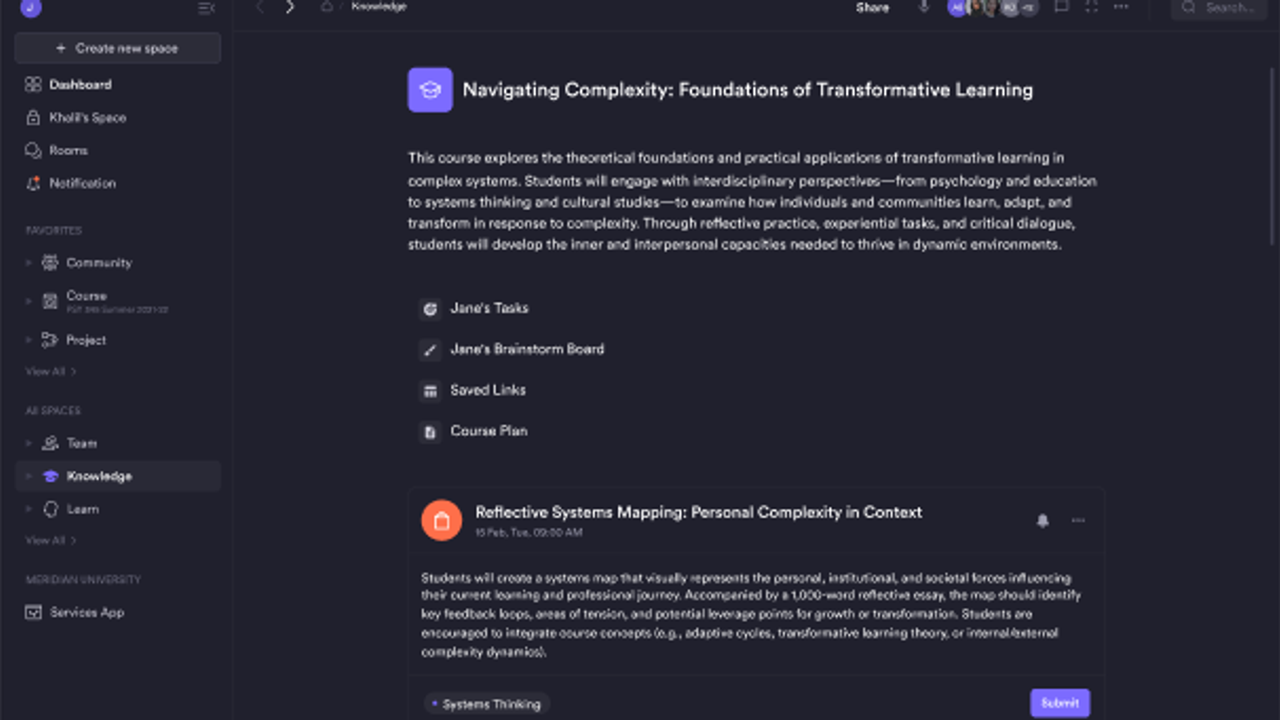
Your course is a place to learn, not a pile of information with no structure. Learners walk in with curiosity, drift between readings and prompts, compare notes, try things, stumble, try again, and leave with a sense that something clicked. Pivot gives you the scaffolding to design that place with precision: pages that hold your syllabus, databases that carry readings and checkpoints, assignments that speak clearly, rooms that host dialogue, recordings that remain useful, and analytics that tell the truth. The result is a course that feels alive and keeps improving while you teach.
Start With Structure For Online Course Creation
Sketch your syllabus into Pages that nest by week or unit. Add Databases for readings, labs, and project checkpoints. Drop a quick Form to capture reflections. Anchor each unit with Goals that name outcomes in plain language. Keep a Calendar visible so time is easy to track. This arrangement scales from a short workshop to a full semester without forcing you to rebuild the house each time you add a room.
Because every block can live across rooms, the same database of readings can appear inside a discussion, the same Goal can surface during planning, and the same Calendar can sit under a weekly kickoff. One backbone, many doorways. You work once and reuse everywhere.
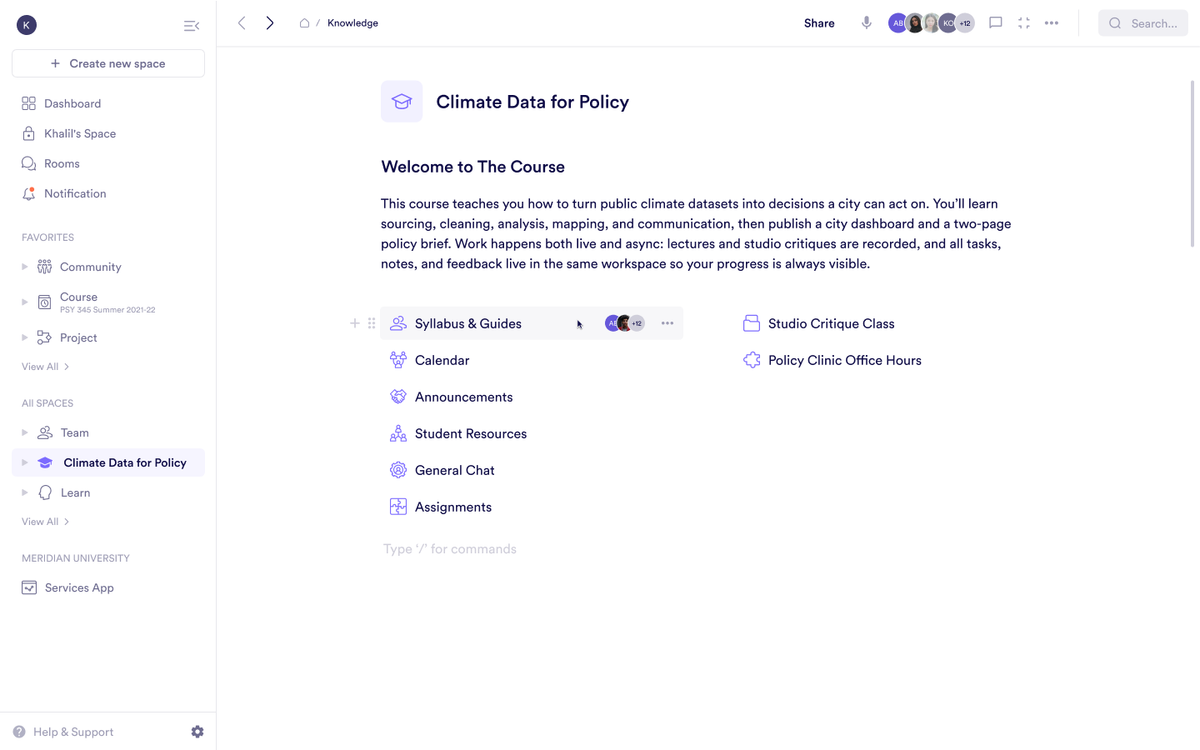
Turn Expectations Into Assignments With Rubrics And Grading
Unclear prompts create anxiety. Clear prompts create momentum. Use the Assignment block to title the task, attach a rubric, and set a due date that appears across the course. Students see what matters and how it will be judged. You get a consistent pattern you can clone unit after unit.
Open Grading and pick the scheme that matches your program culture. Letter scales for familiar reporting. Performance scales when you want descriptive feedback. GPA scales when you must match institutional standards. Define ranges, edit categories, and set defaults at the space level so new assignments inherit the same rules automatically. Grading sits alongside version history and workflows, so you can keep your term organized without hopping between systems.
Spark Participation With Post Rooms, Comments, And Recordings
Deep learning often happens in the pauses between classes. Post Rooms turn those pauses into durable threads. Create topic-based spaces for reading groups, case critiques, and weekly prompts. Students reply with text, images, or short video notes that auto-transcribe for accessibility. Reactions and comments keep the conversation moving, and tags make it easy to find related work later.
Publish, then refine. Edit a prompt that fell flat, set a reminder for late responders, attach a clarifying PDF, or pin the week’s best example. Over time, each thread becomes a learning artifact that new cohorts can revisit and extend.
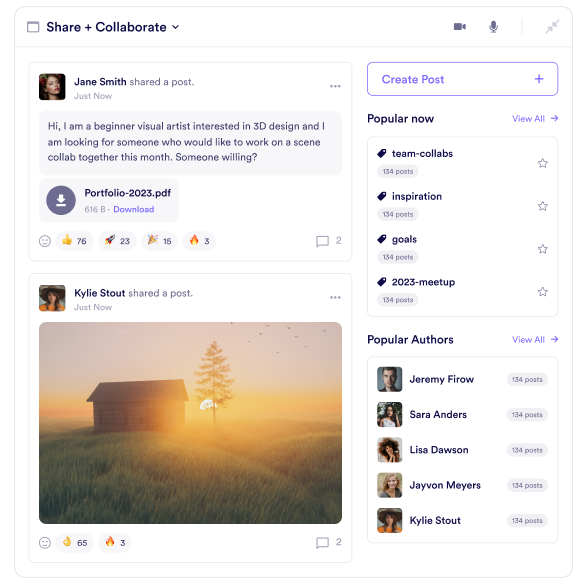
Make Live Teaching Click With Video Rooms And Streaming
Some moments need voice and presence. Video rooms give you pre-join checks for mic and camera, background effects when privacy matters, and a side chat so students can post links and questions without breaking the flow. When the session ends, the recording arrives with transcripts, chapters, and clipping tools. Save the crucial two minutes. Link it back to the prompt. Bring the best of a live hour into the rest of the week.
Running an open lecture or a showcase? Streaming rooms scale to a larger audience. Start with a countdown, preview attendance, and keep moderation tight with request-to-speak controls. You invite participation without losing the room.
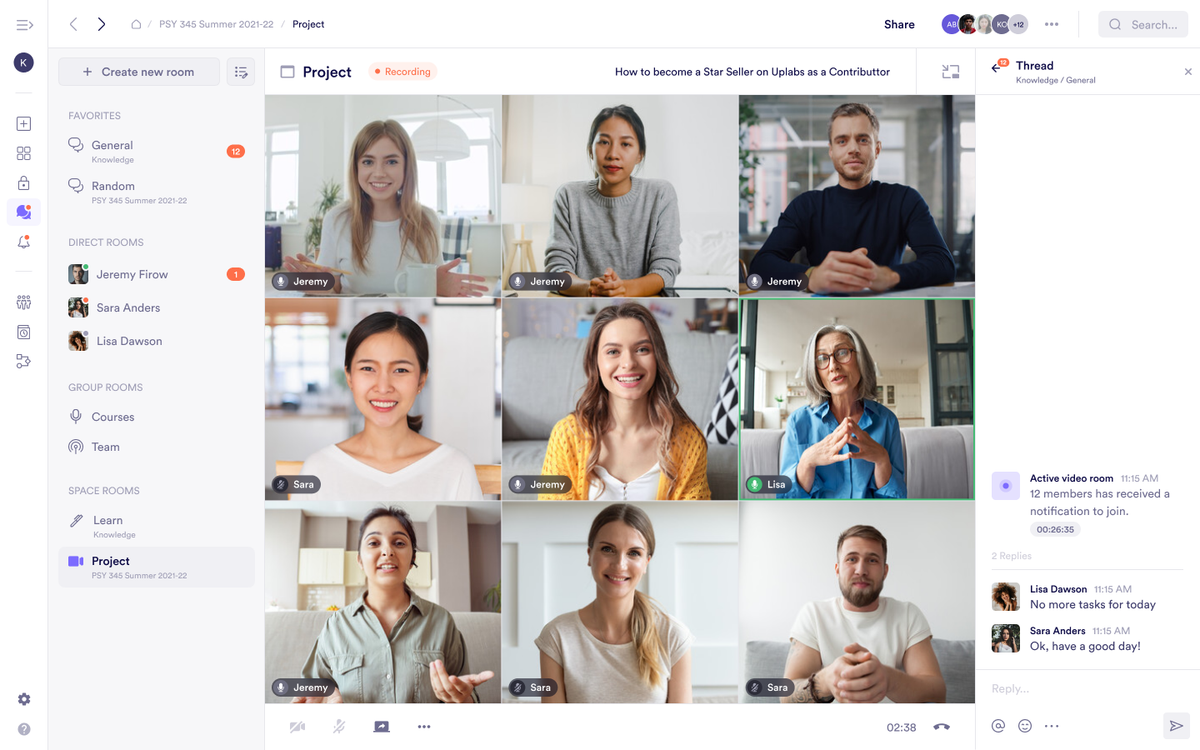
Run Workshops That Actually Work With Breakout Groups
Workshops thrive on focus. During a live session, open Breakout Groups with automatic assignment. Add or recreate rooms as the activity evolves, then pull everyone back for synthesis. Case studies, peer reviews, and design critiques benefit immediately. Because Pivot supports chat, post, audio, and video types inside one space, you can set a rhythm that matches your pedagogy: chat for office hours, post for essays, audio for quick clinics, video for seminars. One creation flow, many formats.
See What’s Working With Space Analytics
Great courses adapt mid-stride. Space analytics surface what people actually use: active members, most visited rooms, activity patterns, attendance. Shift to Member engagement to view an individual’s last activity, top collaborator, and where they participate most. Check block activity to learn which pages and assignments draw attention and which ones need work.
If you report participation, the Member progress and attendance tabs let you filter by person or block, track late arrivals, and search across the term. You keep context while satisfying requirements.
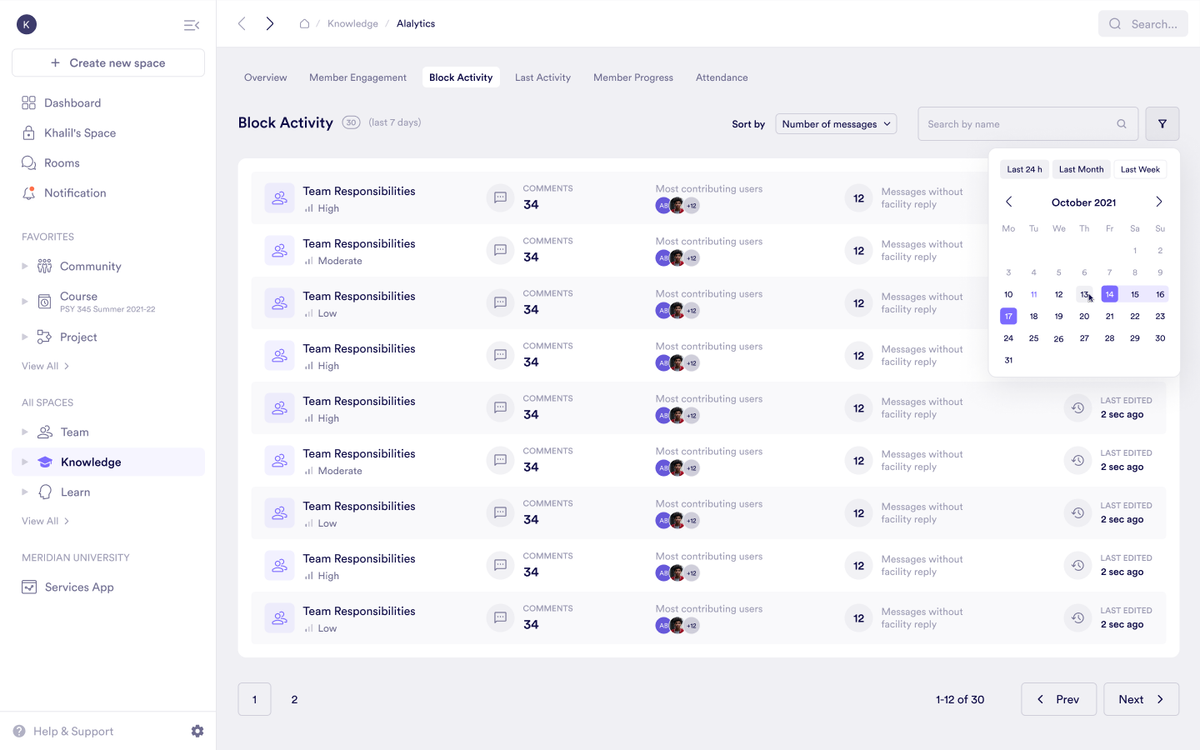
Keep Access Clean With Roles, Tiers, And Sharing
Right material. Right moment. Right people. Create roles with permissions like educator access, view analytics, or edit content. Apply them across groups so TAs, guest speakers, and students each see what they should.
Offer paid pathways? Configure Membership Tiers with names, pricing, billing frequency, and what remains available on cancellation. Learners pick monthly or yearly plans inside the same environment where they study, which keeps enrollment and instruction in step.
Need precision at the block level? Share a page with people, groups, roles, or tiers. Allow template duplication when colleagues should reuse a structure. Set link expirations for public share-outs that should not linger.
Teach With A Social Learning Platform Inside A Learning Management System
Traditional learning management system setups often feel static. Pivot behaves like a social learning platform layered inside your LMS. A student posts a short video reflection in a Post Room. You bring that thread into a seminar. The Video Room records with chapters. You clip the sharpest three minutes and pin it under the original prompt. Dialogue, materials, and assessment stay connected. The medium adapts to the teaching moment, not the other way around.
Because pages, rooms, assignments, and analytics share a single space, the week holds together. The page anchors content. The assignment sets expectations. The post captures dialogue. The video catches tone. The analytics point to what needs reinforcement. Nothing drifts.
Example Weekly Flow For Online Course Creation
Monday. Publish the week’s Page with objectives in a Goal block. Attach readings in a Database and add a quick Form to check prior knowledge. Wednesday. Host a seminar in a Video Room. Save the recording with transcripts and create a 90-second clip of the model solution for students who missed it. Thursday. Students respond in a Post Room, tagging by topic so peers can find related work. You leave comments and quick reactions that nudge depth. Friday. Assignment due at midnight with a visible rubric. Grading follows the scheme set at the space level. Sunday. Review Space Analytics to catch drop-offs or outliers. Adjust next week’s module before Monday.
Practical Patterns You Can Copy Today
The Three-Step Prompt
Post a short scenario with two constraints.
Ask for a paragraph response and one question.
Pin a strong example and explain why it works.
Rubric That Teaches While It Grades
Criteria written as actions students can practice
Performance levels described with verbs, not vague adjectives
One line on how to improve for the next attempt
Clip-And-Carry Teaching
Record the live session
Clip the key exchange into 60–120 seconds
Embed the clip on the unit page and the related post
Add one reflective question beneath the clip
These small patterns cut confusion and raise quality without adding meetings.
Online Course Creation That Feels Alive
Pivot treats online course creation as a craft you practice in public with your learners. You outline modules with pages and databases, set clear expectations with assignments and rubrics, hold live moments that turn into lasting clips, and keep conversation flowing in post rooms. Analytics reveal where attention gathers and where it slips, so you refine the design while the course is in motion.
Build your next cohort inside a course creation app that plays well with your learning management system and behaves like the social learning platform you wanted on day one. Start a space, publish your first Page, and add one Assignment today. Tomorrow, run a Video Room and clip a minute into a Post Room prompt. By the end of the week, you will feel the difference a living course makes.
Table of Contents
Create your own Knowledge Base
Experience the power of synchronized collaboration
Collaborate globally, instantly, together
Bring versatility to your course design
Blend community with content and learning
Unite internal and external teams
Consolidate wikis, projects, and messaging
Try dynamic multi-modal collaboration